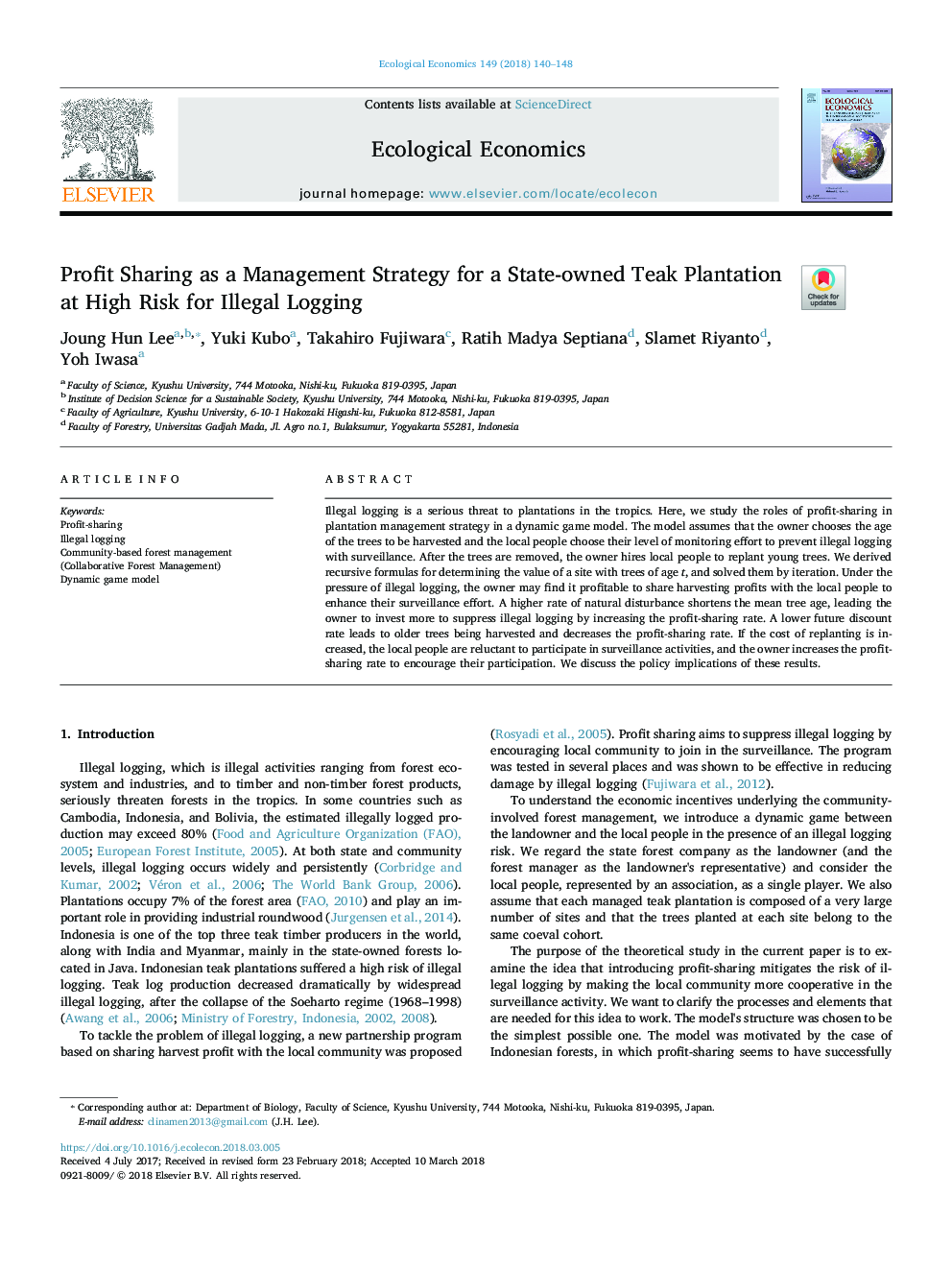| Article ID | Journal | Published Year | Pages | File Type |
|---|---|---|---|---|
| 7344102 | Ecological Economics | 2018 | 9 Pages |
Abstract
Illegal logging is a serious threat to plantations in the tropics. Here, we study the roles of profit-sharing in plantation management strategy in a dynamic game model. The model assumes that the owner chooses the age of the trees to be harvested and the local people choose their level of monitoring effort to prevent illegal logging with surveillance. After the trees are removed, the owner hires local people to replant young trees. We derived recursive formulas for determining the value of a site with trees of age t, and solved them by iteration. Under the pressure of illegal logging, the owner may find it profitable to share harvesting profits with the local people to enhance their surveillance effort. A higher rate of natural disturbance shortens the mean tree age, leading the owner to invest more to suppress illegal logging by increasing the profit-sharing rate. A lower future discount rate leads to older trees being harvested and decreases the profit-sharing rate. If the cost of replanting is increased, the local people are reluctant to participate in surveillance activities, and the owner increases the profit-sharing rate to encourage their participation. We discuss the policy implications of these results.
Keywords
Related Topics
Life Sciences
Agricultural and Biological Sciences
Ecology, Evolution, Behavior and Systematics
Authors
Joung Hun Lee, Yuki Kubo, Takahiro Fujiwara, Ratih Madya Septiana, Slamet Riyanto, Yoh Iwasa,
